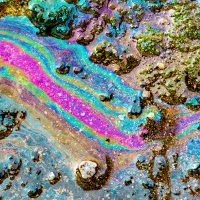Trichloroethylene And Drinking Water Contamination

The federal government recently enacted the Camp Lejeune Justice Act, which expands protections for people who were harmed by the presence of volatile organic compounds (VOCs) in the drinking water at Camp Lejeune Marine Corps Base in North Carolina between the 1950s and the 1980s. One of these VOCs is trichloroethylene (TCE), a solvent which has many industrial uses, including cleaning metal parts and the manufacture of refrigerants, paints, adhesives, lubricants, pesticides, and paint thinners. Exposure to high concentrations of TCE through drinking contaminated water or breathing contaminated air can have serious adverse health effects. If your cancer diagnosis is related to preventable environmental exposure to TCE at Camp Lejeune Marine Corps Base or elsewhere, contact a Columbia personal injury lawyer.
How Does TCE Exposure Happen?
TCE can contaminate water and soil through industrial spills and leaks. It can also be released into the air at work sites. Once TCE is released into the air, it breaks down quickly, so people are unlikely to be exposed to high concentrations of TCE in the air unless they are directly working with it; employers should provide protective equipment such as masks and oxygen tanks for employees who must work near TCE for prolonged periods of time.
Local governments must test public wells within their jurisdiction and decontaminate the water if TCE concentrations exceed the levels legally considered safe. If your drinking water comes from a privately owned well that does not undergo routine screening, you can reduce your risk of exposure to dangerous levels of TCE by using a water filter.
Health Risks of TCE
Acute exposure to TCE through inhalation can cause sleepiness; for this reason, it was used as an anesthetic in medical settings decades ago, before safer anesthesia drugs became widely available. Inhalation of higher concentrations of TCE can cause coma or even death.
Prolonged exposure to unsafe concentrations of TCE in drinking water can cause liver disease, kidney cancer, and infertility in men and women. In utero exposure to TCE increases the risk of low birth weight. Animal studies have linked TCE exposure to liver, kidney, and testicular cancer and leukemia.
Remedies for Victims of Preventable TCE Exposure
The dangers of exposure to high concentrations of TCE are well documented, and regulations are on the books outlining what companies and government entities must do to prevent the public from being exposed to unsafe levels of TCE through air or drinking water. If your doctors have determined that your diagnosis of cancer or another chronic illness is related to your exposure to TCE, you may have grounds to file a personal injury lawsuit. You may be able to recover compensation for the medical bills and lost income related to your illness.
Let Us Help You Today
The personal injury lawyers at the Stanley Law Group can help you if your family member suffered a serious illness because of environmental exposure to TCE or another volatile organic compound. Contact The Stanley Law Group in Columbia, South Carolina or call (803)799-4700 for a free initial consultation.
Source:
atsdr.cdc.gov/sites/toxzine/trichloroethylene_toxzine.html
